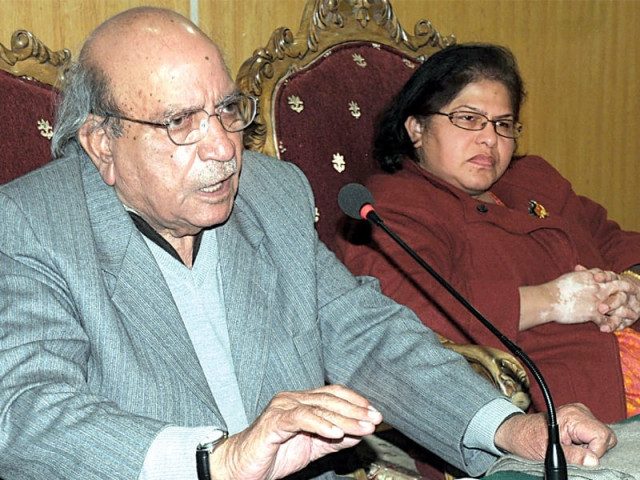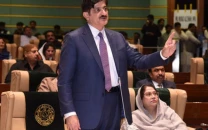Under a covert attack: ‘Do not divert the blame on Parliament’
A free judiciary should also be free of its own prejudices: Rehman.

In the highly volatile political environment, the parliamentary democracy is once again facing an existential threat owing to “bias” of certain state institutions. These words of caution were stated by veteran journalist and human rights activist IA Rehman at a seminar on ‘Democracy Besieged’ on Friday.
He warned that in a new power game, the establishment and judiciary are seeking to weaken the parliament, with the tacit support of the corporate media.
Rehman added there was no direct clash between state institutions; however, the judiciary will have to revisit its approach. He said the lawyers who were basically the representatives of the public at large have disappointed.
“The rhetoric of ‘corruption’, ‘sovereignty’ and ‘rule of law’ is being employed to delegitimise the elected regime. With the help of host of politically motivated court cases (NRO, Memogate) pressure is being exerted on the government,” he said.
The parliament and the government in particular are being exclusively blamed for the persistent worsening of longer-term structural problems. Consequently, he said, a vast majority of the Pakistanis want an end to the current democratic experiment in favour of ‘clean’ and ‘efficient’ alternatives.
“The Supreme Court has been biased in choosing which issues to bring into its purview, with the military in particular, notably exempt from any judicial scrutiny,” said Aasim Sajjad of Workers’ Party Pakistan.
He noted that subsequent developments have indicated that the judiciary, instead of strengthening the parliamentary democracy, is asserting a new interventionist role that is subjecting the weak democratic structure to new pressures.
Security analyst and columnist Dr Ayesha Siddiqa said that anyone thinking a military coup was not possible was gravely mistaken.
She said the military could still exert itself in the shape of its actors.
“We have lost three wars and hundreds of cases are pending with the judiciary. In these circumstances, can we say the state institutions are working, no they are not,” said Siddiqa. She added that however bad they were, the political parties were better than a military dictatorship and the parliamentary process should be allowed to continue.
Rehman said that the concerns raised in the seminar should not be perceived as if the speakers did not support a free judiciary.
“We support free judiciary but a judiciary that is also free of its own prejudices,” he added.
Speakers said that rhetoric of ‘change’ emanating from sections of the media, higher judiciary and new populist parties betrays the fact that these forces are rehashing the old discourses of ‘national security’ and narrow religious nationalism.
A unanimous resolution was passed demanding that the higher judiciary and military establishment recognise the supremacy of the parliament and refrain from any steps that would unhinge the political process.
Published in The Express Tribune, January 21st, 2012.



















COMMENTS
Comments are moderated and generally will be posted if they are on-topic and not abusive.
For more information, please see our Comments FAQ